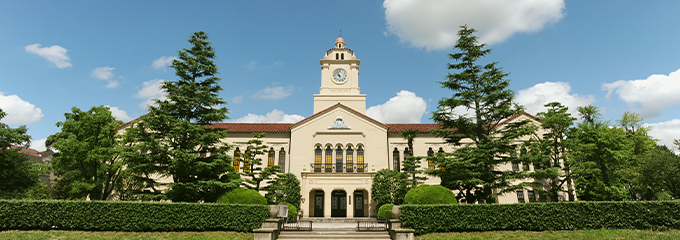History

The School of Economics dates back to 1934, when the faculty of commerce and economics welcomed 123 undergraduate freshmen to Kwansei Gakuin University, which had received its charter as the fourth Christian university in Japan two years before. In 1944, the educational and research activities of the faculty were brought to a halt in compliance with Japanese government wartime policies. Their activities resumed, however, shortly after the end of WWII, and in 1946, the School of Economics was given its present name. From the 1950s the School began to gradually expand its capacity for undergraduates, meeting the national demand for the democratization of higher education. Around the same time, graduate programs, as distinguished from the undergraduate ones, were established, and later produced many academic and professional economists. The School is now home to approximately 3,000 undergraduate students and 20 students working toward a master’s degree or Ph.D.
Historically, an important item to note about the School is that it has been well known for non-Marxian, or “modern,” approaches to economics, even when Marxian economics was remarkably influential at many other universities in Japan from the early 1950s through the early 1990s. With this liberal intellectual tradition, faculty research has encompassed the broad fields not only of international trade, growth, development, public sectors, money and finance, environment, and industrial organization, but also economic history and the history of economics. In 1982, the late Professor Manabu Yunoki (1929–2000) of the School won the Japan Academy Prize for his study of maritime history in early modern Japan, while Professor Emeritus Hiroshi Takemoto (1944–) won the prize in 1999 for the study of the making of economics in 18th-century Scotland. The faculty’s energetic research activities are at the forefront of a variety of fields, which continue to inspire their teaching of such core subjects as micro and macroeconomics as well as applied subjects for undergraduates and graduates alike. In addition, the School has a number of faculty members working on humanities (e.g., theological, linguistic and literature studies) and thus its economic education for undergraduates is enriched to be a liberal-arts education as a whole. Furthermore, the helpful and caring administration staff is dedicated to the School’s success by supporting the faculty and all of the undergraduate and graduate students.
The School of Economics boasts a long tradition and, at the same time, a progressive atmosphere. It aims to contribute much to society through both its research and education.
